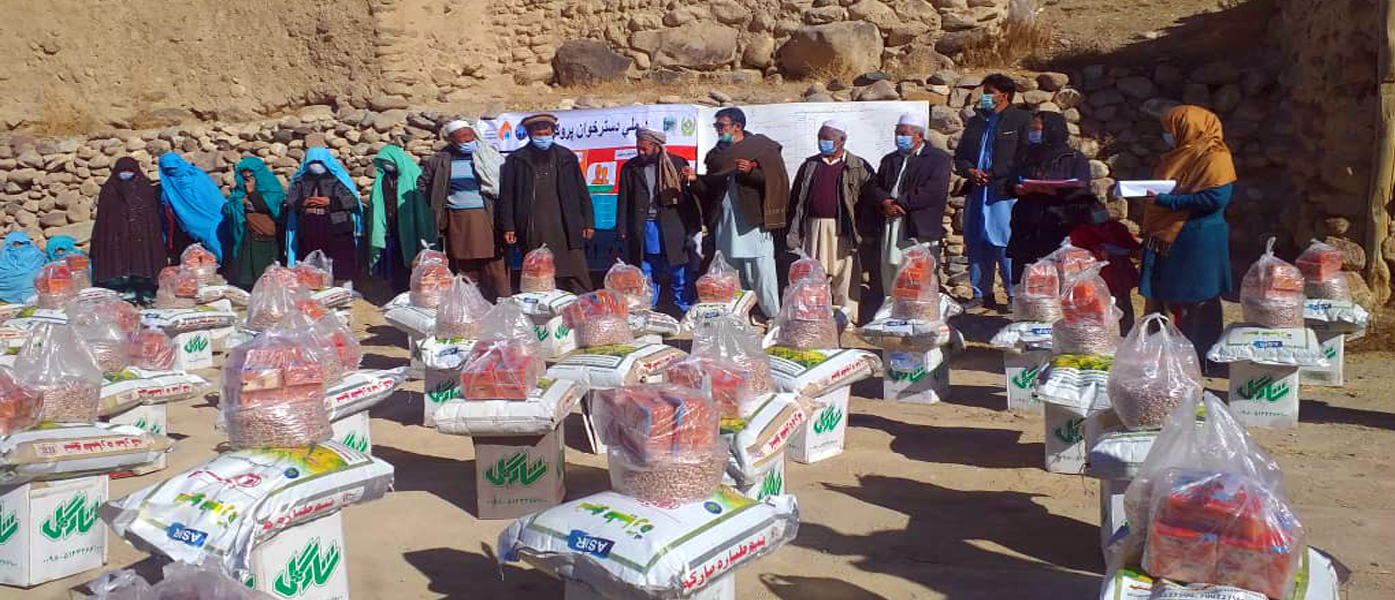
“My husband is a drug addict and my children were hungry” says Ms. Khadija
Consisted of 68 households, the Deh Dawlat village is located in Khwaja Omari district of Ghazni province. The Coronavirus pandemic has affected the residents of this community as seriously as most of them could hardly eat a meal only once a day because of their economic difficulties, caused by an increase in unemployment rate in the region.
Ms. Khadija, 38 who has encountered severe shortage of food appreciates distribution of relief packages under Dastarkhwan-e Meli in Deh Dawlat village.
“My husband is a drug addict. So, I have to perform the handicraft activities to support my family comprised of four members. Soon after the Covid-19 pandemic hit our community, I lost my job and our economic pressures have further increased. My drug addict husband from one side, and from other side my children slept hungry. We faced pretty much difficult time. We were affected as hard as we didn’t often have anything to eat. Fortunately, the relief packages under Dastarkhwan-e Meli program have resolved our problems to a great extent. The packages consisted of essential food items that have satiated our hunger for this winter at least.”
As of March 15, 2021, more than 467 thousand households in 3,447 communities of 120 districts in 34 provinces of Afghanistan have received relief packages totaling more than 1.89 billion Afghanis in the rural areas covered by the Citizens’ Charter National Priority Program-MRRD.
The COVID-19 pandemic resulted in negative economic impacts on the lives of people, especially the poor & daily wage-earners. The Government of Afghanistan has initiated a relief response program – called Dastarkhwan-e Meli – that would be implemented in cities and villages. Dastakhwan-e Meli program is planned to be implemented in two phases.
The first phase of Dastarkhwan-e-Meli Program worth USD 86 million has already been launched in nearly 13 thousand communities related to 123 districts across all 34 provinces of the country under the coverage of the MRRD/CCNPP. As planned and set out, 1.67 million households in the rural areas will receive relief packages, valued at AFN 4,000 per household.
×
![]()